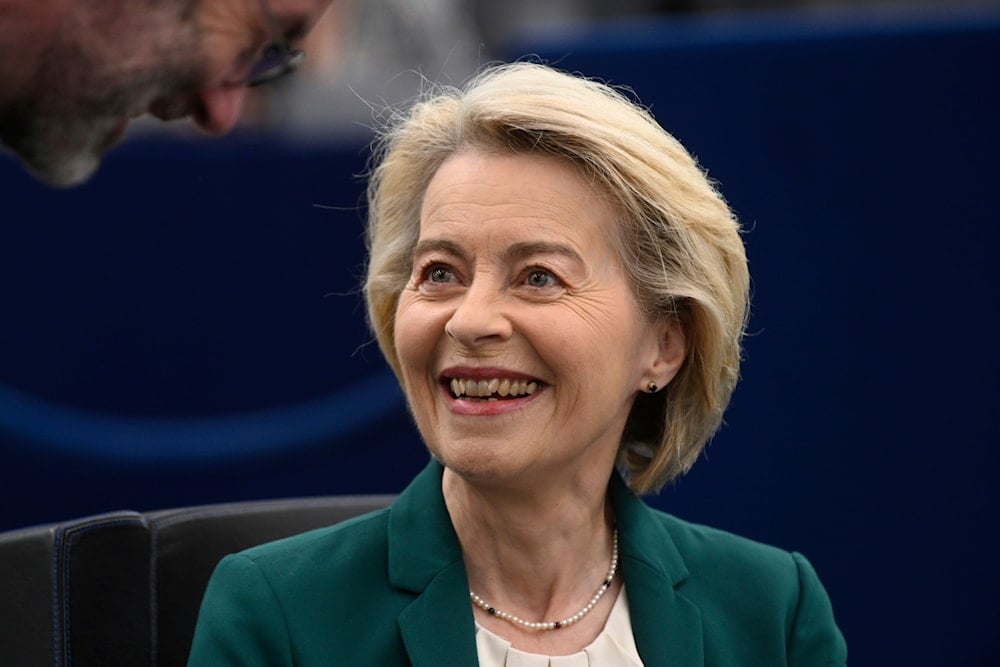Von der Leyen survives no-confidence vote in European Comm. leadership
Ursula von der Leyen survives a no-confidence vote in the European Parliament, exposing deep divisions over EU leadership and the Green Deal.
-

European Commission President Ursula von der Leyen before delivering a speech on the preparation for the EU–China Summit, Tuesday, July 8, 2025, at the European Parliament in Strasbourg, eastern France (AP)
Ursula von der Leyen retained her role as European Commission president after surviving a no-confidence vote on Thursday.
A motion submitted by the hard-right in the European Parliament was put to a vote, and a majority of the members who participated chose to support Commission President Ursula von der Leyen, who would have been forced to resign along with her entire Commission had the vote gone against her.
In the vote on the motion, 360 MEPs opposed it, while 175 supported it and 18 abstained, with 553 out of the total 720 MEPs participating in the ballot, which would have required at least 357 votes in favor to pass.
Despite receiving support from her European People’s Party, the Socialists, Renew’s liberals, and the Greens, many lawmakers from these factions failed to attend the vote.
Von der Leyen's other grievances
Although von der Leyen, as anticipated, has survived to continue her political battle, her challenges persist as the recent no-confidence vote, which marks the first such attempt since 2014, reveals growing political resistance against her as she, like much of Europe, shifts toward the right. This puts her up against two of the parties that brought her to power.
While von der Leyen managed to survive the challenge, political factions from across the spectrum seized the opportunity to voice their discontent with the Commission, raising concerns over issues such as transparency and the excessive concentration of power, the perceived retreat from the Green Deal, and allegations of disregarding established EU institutional procedures.
The political fallout has further destabilized the alliance backing von der Leyen's bid for a second term, as tensions grow between the Commission president and key supporters, particularly the Socialists and liberals, who are increasingly distancing themselves from her leadership.
Before the vote, both groups threatened abstention over concerns about the Commission's rightward shift, but liberals relented to avoid destabilizing Europe, while Socialists withdrew their opposition after securing budget concessions from von der Leyen ahead of next week's EU budget proposal.
More to come
Gheorghe Piperea, a Romanian legislator from the right-wing European Conservatives and Reformists (ECR) who initiated the motion against von der Leyen, explained to POLITICO that while he anticipated the motion would not pass, he believed the effort was beneficial for the EU.
He suggested it would "open Pandora’s box" by demonstrating that challenging the Commission president is indeed a viable possibility. Piperea warned that von der Leyen should prepare for multiple additional censure attempts in the future.
The EPP dismissed these concerns, with vice-chair Siegfried Mureșan telling POLITICO the political fallout would be short-lived, quipping that by the time lawmakers returned from their summer recess, this episode would likely fade from memory.

 3 Min Read
3 Min Read








